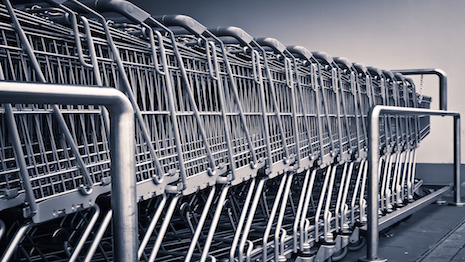- About
- Subscribe Now
- New York,
July 27, 2017

 Digital is making up a larger portion of total luxury sales. Image credit: Pixabay
Digital is making up a larger portion of total luxury sales. Image credit: Pixabay
Luxury consumers who agree to be contacted by a brand to receive news and promotions spend on average 20 percent more than those who do not, according to a new report by Contactlab and Exane BNP Paribas.
This data comes from the fifth annual "Digital Frontier 2017: Multi-brand vs Mono-brand" report, which looked at ecommerce trends to determine how customers are engaging with luxury brands online. What they found was that digital represents a huge portion of luxury sales and that personalization is key to capturing the consumer's attention.
“In the luxury sector, the online offering is now very strong with a wide range of prices, for example, from $25 for a Ralph Lauren tote bag to a $50,000 bag by Hermès,” said Marco Pozzi, senior advisor at Contactlab, Milan.
“However, the pace of growth of the ecommerce channel is starting to slow, particularly in English-speaking countries, and brands are starting to focus more on digital customer engagement for customers who purchase in store and are known to buy more frequently and spend more," he said.
Digital contacts
While the retail industry at large has been feeling the effects of the digital revolution for some time, luxury has been somewhat shielded from some of its impact, given the desire for affluent consumers to come into a store and shop physically.
This is changing however, and now multichannel consumers, those who buy online and in-store, are the most profitable sector in the luxury world.
These customers spend about 50 percent more each year than customers who stick to a single channel.
In-store revenue from contactable customers. Image credit: Contactlab
Additionally, the ways in which brands contact these customers has an affect on how much and often they spend.
For example, customers who are “digitally contactable,” who have agreed to allow the brand to contact them via email or other digital technology about news and promotions, spend 20 percent more than those that do not. This figure has also grown slightly over the past few years.
Finally, 35 percent of all luxury monobrand sales are linked to digital, suggesting that more luxury consumers are looking for online platforms to find the products they need.
Luxury ecommerce
Having a strong digital presence is paramount for luxury brands and retailers.
Ecommerce can be a vital tool, especially for reaching customers around the world or in places where they may not have as easy access to a physical store.
For example, French fashion house Louis Vuitton is making it easier for Chinese shoppers to purchase its wares at home with the launch of a China-dedicated ecommerce site.
Louis Vuitton launched louisvuitton.cn on July 20, making China the LVMH flagship brand’s 11th ecommerce market since its French site debuted in 2005. Localization is an important factor for brands looking to capitalize on new markets due to cultural differences (see story).
Extra spending from contactable customers. Image credit: Contactlab
Many luxury retailers have begun blurring the line between digital and physical by offering customers services that cross between the two.
Chinese ecommerce giant JD.com is giving the online luxury shopping experience a more personal touch.
For its JD Luxury Express, the retailer has trained a special team of employees, who will shuttle luxury purchases to consumers’ doors in style. Designed to more closely replicate the individualized experience expected from bricks-and-mortar stores, JD’s service aims to ensure that luxury products are handled in a manner that reflects the brand (see story).
"Web, social media and digital direct marketing content all seem rather standardized now, and at the local level, are little more than mere translations," Contactlab's Mr. Pozzi said.
"The new challenge, therefore, is to increase the level of personalized content using assets that are already in place, such as sales associates, who are already in every store in the world and know their clients best of all: clienteling is the new digital frontier," he said.
Share your thoughts. Click here